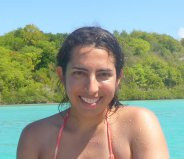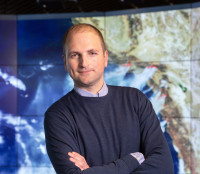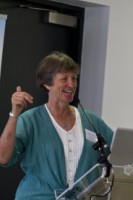Natural Catastrophes
Earthquakes & Seismic Hazards
Post-Doctoral Fellowships
France
2013.06.23
Paleoseismology, seismic cycle and tectonic coupling of the Lesser Antilles subduction zone based on coral microatolls
Similarly, less extreme position changes are observed in coral microatolls – colonies that, on top, are exposed to air and have died, but continue to grow horizontally beneath the water’s surface. These are natural records of relative sea level change, which can reflect deformations of the Earth’s surface that occur as the two plates struggle to move past each other. Dr. Philibosian’s results show this currently happening in the Lesser Antilles, the strain building up until it is released in some future earthquake. Her conclusions so far are consistent with the idea that a major quake in 1843 occurred deep along the boundary between the two plates. From such information allowing her to characterize the Earth’s activity in this region, Belle aims to produce models capable of estimating the earthquake risk, as well as the location and size of coming quakes. The catastrophic consequences of such events, like those that occurred along similar plate boundaries in Japan and Sumatra in recent years, make the stakes of such research all too clear.
Coral’s Contribution to Assessing Earthquake Risk
To add or modify information on this page, please contact us at the following address: community.research@axa.com

Belle
PHILIBOSIAN
Institution
Institut de Physique du Globe de Paris
Country
France
Nationality
French
Related articles
Natural Catastrophes
Societal Challenges
Wildfires
Joint Research Initiative
Spain
Understanding Wildfire Risk: A Local-Scale Assessment Framework in Chile
Wildfire is a major hazard across the globe, causing extensive economic, ecological and health impacts. While wildfires are common throughout... Read more

Marcos
RODRIGUES MIMBRERO
University of Zaragoza
Natural Catastrophes
Climate Change
Wildfires
Climate Adaptation & Resilience
Global Warming
AXA Chair
Greece
AXA Chair in Wildfires and Climate
The consequences of climate change have never been as substantial and visible in such a wide range of places around ... Read more

Apostolos
VOULGARAKIS

